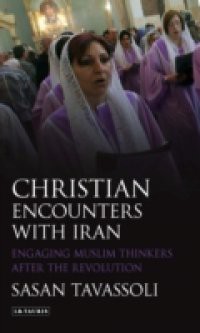The interface between the current Shi'ite landscape and Christian thinking is of the greatest significance for the shifting political and religious dynamics of the Middle East. Sasan Tavassoli here examines Iranian Shi'ite thinkers' encounters with Christian thought since the Islamic revolution of 1979, and argues that Iranian Shi'ite thinkers are increasingly engaged in multi-faceted theological engagements with Christian thought. _x000D__x000D_Three recent developments provide insight into the cultural and intellectual climate surrounding Christian-Muslim dialogue in contemporary Iran. The literature on Christianity available in Iran reveals a wide range of approaches and attitudes, and Tavassoli demonstrates that traditional polemics are giving way to a more descriptive and subjective understanding of Christian thought. A significant part of Muslim-Christian dialogue in Iran is conducted through inter-faith dialogue and research conducted and supported by governmental as well as non-governmental organizations, and recent developments mark a departure from traditional debates in the history of Muslim-Christian interactions. Finally, Tavassoli offers a close study of three prominent liberal religious intellectuals - Abdol Karim Soroush, Mostafa Malekian and Mojtahed Shabestari - and their dynamic interaction with Christian thought, through a discussion of their writings as well as interviews. He explores their contribution to the ongoing understanding of Christianity in Shi'ite Iran. _x000D__x000D_'Christian Encounters with Iran' places contemporary Shi'ite thought in the broad historical context of pre- and post-revolution Iran, and relates the concrete religious, cultural and socio-political realities of Iran to the themes and orientations in the latest phase of the Shi'i Islam-Christianity encounter. It thus offers fresh insight into the dynamism of contemporary Islam and the religious complexities of the Muslim world. _x000D_

